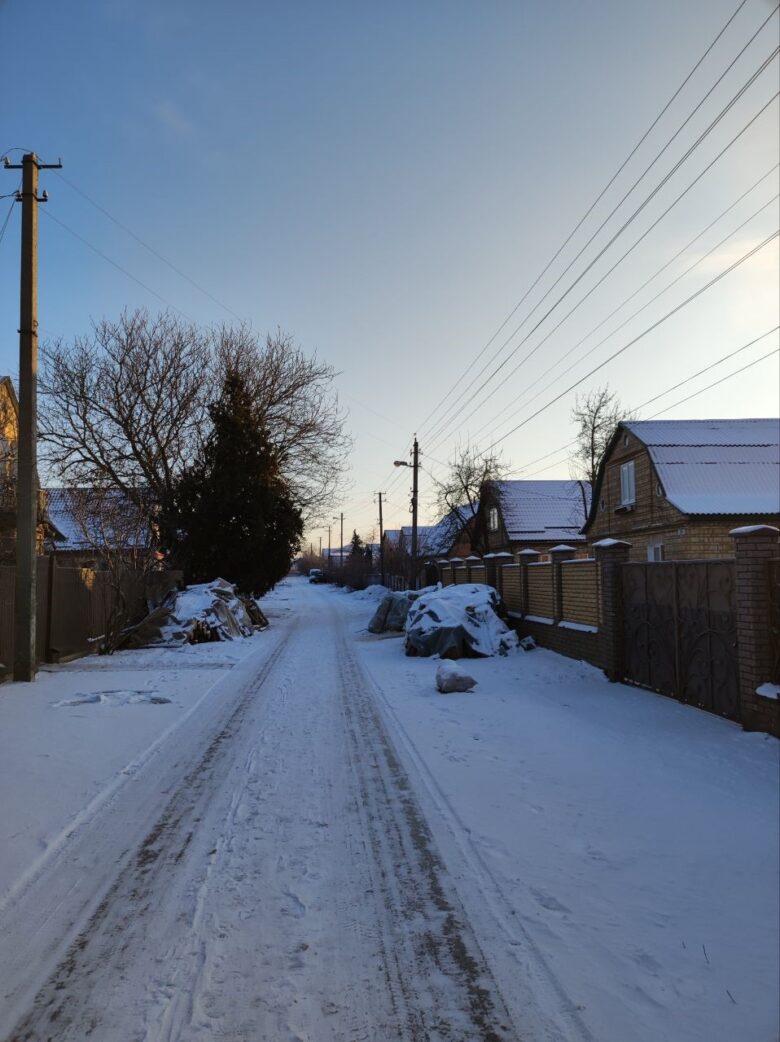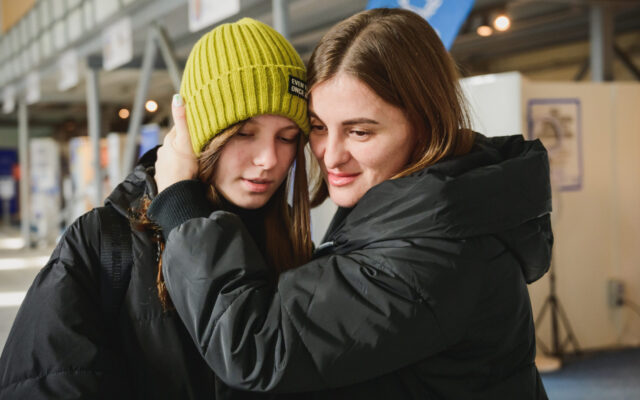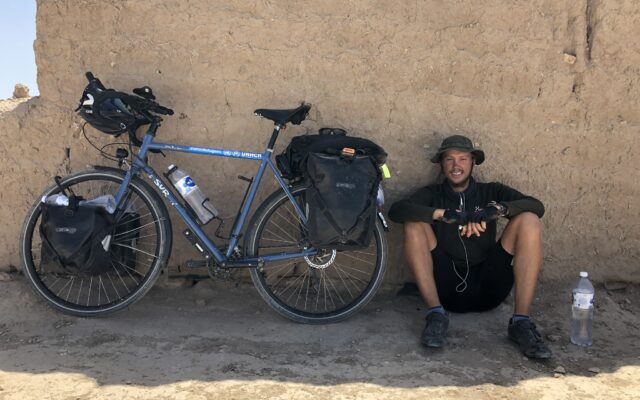“Daughter, we’re not going anywhere today because I think the war has started.”
UK for UNHCR spoke to Ukrainian translator Natalia about how her life changed when the war in Ukraine started, and how she’s doing now.
12.05.23
A Ukrainian internally displaced woman collects warm clothing for her family in their temporary accommodation. © UNHCR/Igor Karpenko
We first spoke to then 26-year-old Natalia in 2022, not long after Russia invaded Ukraine. After more than a year of war in Ukraine, we spoke to Natalia again to reflect on the past year and give an update on her situation.
This is part one of a two-part series.
—
My name is Natalia, I’m 26 years old and I’m from Ukraine.
Languages have always been my passion, which is why I work as an Arabic and English translator, alongside learning Turkish in my spare time. I worked for a culinary academy, translating pastry video courses into Arabic and English.
On 24th February I was at home, living with my parents in a big house 25 km away from Kyiv, the capital of Ukraine.
That morning, the war started. I was planning to go to work, but my Mum woke me up with words nobody ever wants to hear: “Daughter, we’re not going anywhere today because I think the war has started.”
She had woken before me at around 5am to the sound of explosions. When I woke up, I heard them too.
I told my Mum to get our bags and pack some clothes and our documents as we didn’t know what was going to happen. My Dad went to withdraw money but the lines at the cashpoints were huge. My Dad took out some cash and went to the supermarket to get food for us and our pets.
All the family gathered in one house – nine of us, including my younger brother, grandmother, grandfather and my parents. We filled every container we had with tap water, scared that the water would be cut off.
The sound of explosions continued into the day, and we decided to stay home. People were panicking, some people were leaving the city, going towards the west of Ukraine.
The first day wasn’t very scary – we heard explosions and saw some helicopters flying over towards Kyiv but in our village, everything seemed fine. However, as night came the sounds became louder, forcing us down to our basement because we weren’t sure what was going to happen.
From the basement, we heard really loud explosions. We later learnt it was the Ukrainian army blowing up the bridge near our village which leads to Kyiv, to stop the Russian soldiers from moving forward. Due to this, we couldn’t leave our village – we were stuck.
This was the scariest part – we were panicking, and we were devastated.
The next few days were awful. Our village is in the north of Ukraine, around 90 km from the border with Belarus. The Russian army came quickly – we saw them come into the village, shooting in the air. The Ukrainian army was on the other side of the bridge.
There were constant shootings, bombings and shellings above us. We learned the sound of every gun and explosive, and it was like this for about nine or ten days. We moved our mattresses to the basement – nine of us and our pets – but it was impossible to sleep. It was cramped and uncomfortable and we still didn’t feel safe.
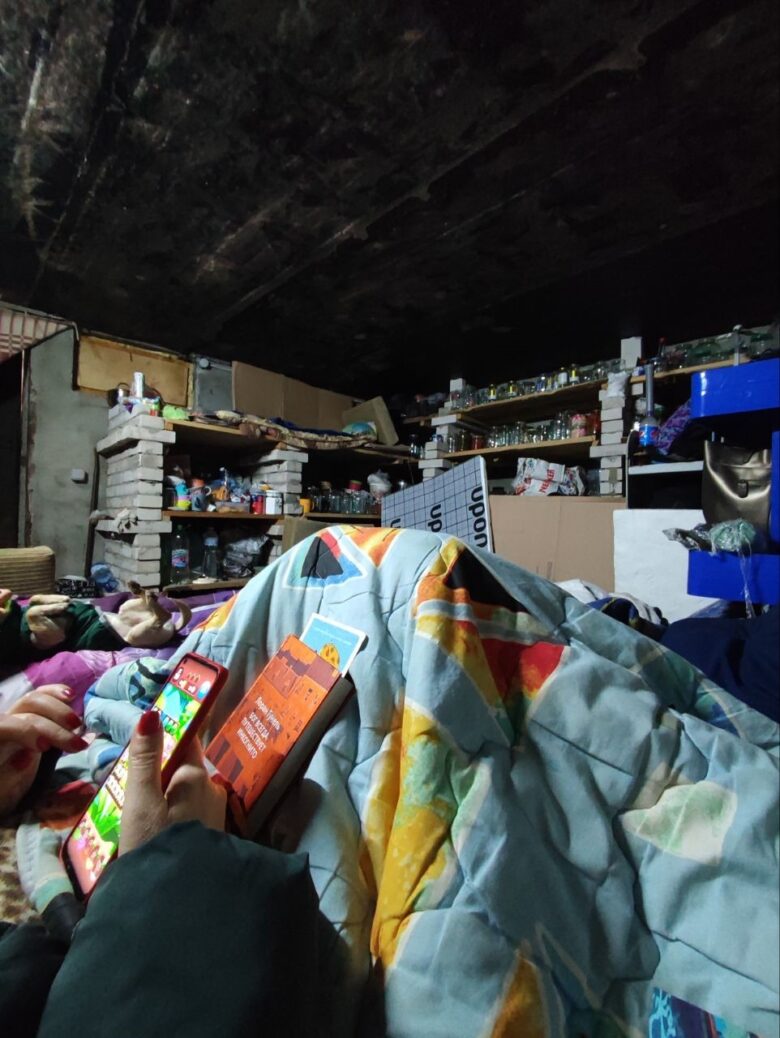
Natalia and her family were forced to live in their basement for 9-10 days.
The electricity was cut off, we had no heating, and the mobile network didn’t work – sometimes we managed to call someone, sometimes we didn’t. This meant we couldn’t follow what was happening in Ukraine, we were totally cut off. I felt my mental health deteriorating as I was crying all the time and so was my Mum, but my Dad was stable and comforted us.
I told my Mum that if there was a way to leave the village I wanted to go. I couldn’t imagine staying here.
We heard about some volunteers who provided buses out of the village. Even escaping was dangerous because we knew Russian soldiers were in the village, but we didn’t know exactly where or what was happening.
We decided to go, but my Dad didn’t want to leave as we had our house, our car and everything here, so we had to persuade him. The four of us then went, but the other members of the family didn’t want to leave. They said, ‘We will stay here, and stay in the house’ – it was difficult for older people to leave their houses. My Grandfather and Grandmother didn’t want to leave – they were willing to die there.
We had to leave our dog, Roxy, because she was too large. My Grandmother and Grandfather said they would take care of her.
To escape, we climbed over a broken bridge and walked for 3 or 4 km – the army checked our documents, and we got on a bus that brought us to the city, where we boarded an evacuation train to western Ukraine.
We stayed there for two months because the Kyiv region was occupied for some time. We couldn’t return anywhere near home because there was nothing there; no electricity, gas, heating, or water.
Around three days after we went to western Ukraine, we lost contact with my Grandfather and Grandmother. We didn’t know what happened to them. We finally got through and they told us they were also forced to leave as it became really hostile – they saw Russian soldiers walking through the village shooting. It was difficult for them to leave as my Grandmother couldn’t walk a long way, and both are elderly.
Life for me now is different. When the war came nobody expected it – nobody thought about it. Everything changed in one second.
Before the war, I was planning for the future, but now it’s difficult to do that.
I used to work a lot and didn’t take many breaks. Now, I want to spend time with people I love. Work, money, it will all come – but the people you love are most important.
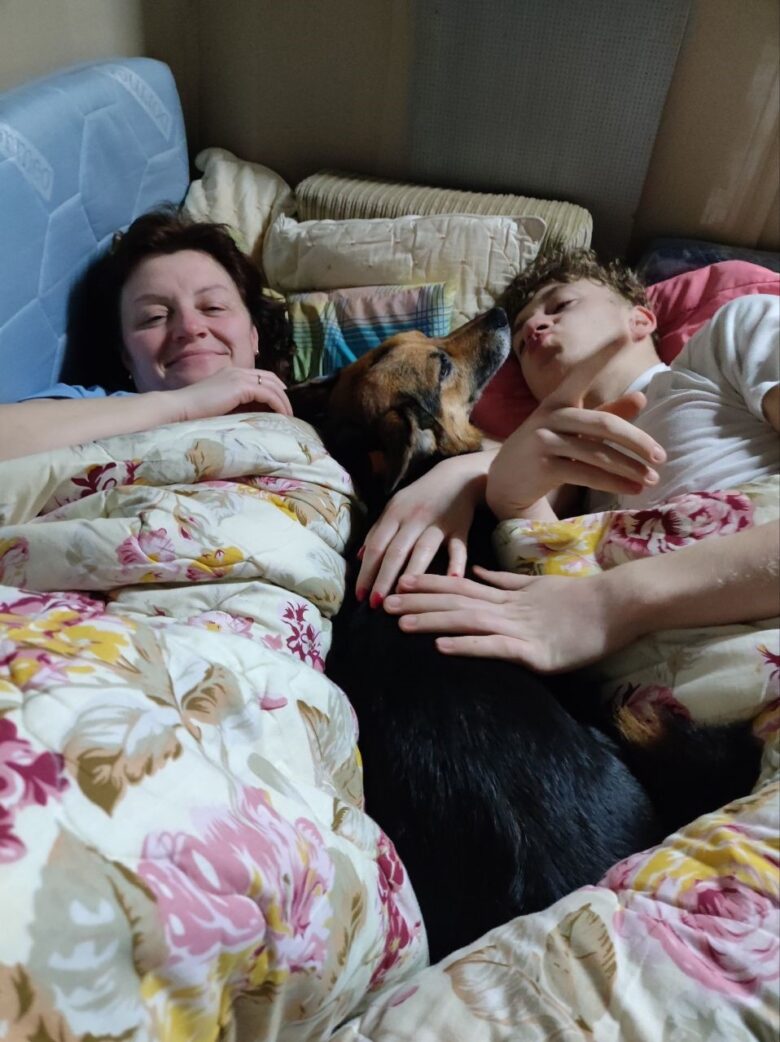
Natalia’s family photographed in their basement alongside her beloved dog, Roxy.
Even though where I live now isn’t occupied – the risk is still there. I frequently hear air-raid sirens, and people are still scared. We are continuing to support the people in the east of Ukraine, despite the little money we currently have.
I don’t miss my previous life because war showed me how to treat myself and my family better, and with more love.
—
To read Natalia’s Gallery of the (New) Home submission, please visit our website here.
—
Millions of people like Natalia have been forced to flee their homes. UNHCR is in Ukraine and neighbouring countries providing lifesaving assistance. Please donate today to support UNHCR’s vital work.


